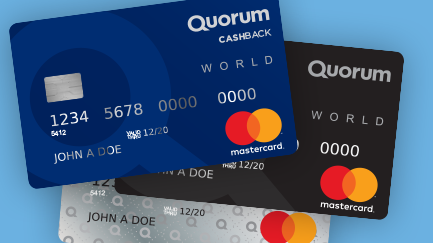Refinancing involves replacing your existing mortgage with a new one better suited to your needs (most often, with lower interest rates). Because homeowners’ situations can change for any number of reasons, many people look at refinancing as a way to better handle their finances. Here are some tips to help determine if refinancing is right for you.
Understand the Components of Your Mortgage Payment
Your monthly payment consists primarily of payments toward principal and payments toward interest. Principal is the total amount borrowed that you have promised to pay back to the lender. Interest is what the lender charges you for loaning you the money, based on your interest rate. Your payments may also include insurance and taxes, which can be built in to your monthly payments so that the lender will make them on your behalf when they come due.
In the early years of your mortgage, the majority of your monthly payment goes toward interest. Over time, as cumulative payments towards the principal grow, monthly payments towards interest are reduced and eventually become smaller than the payments towards principal. Because of this, most refinances happen in the early years of a mortgage when the majority of each payment is still going towards interest.
Calculate Your Total Cost Savings of a Lower Interest Rate and/or Shorter Loan Term
Most people refinance to save money, either by taking advantage of lower interest rates or getting into a shorter loan term, or both. If rates have dropped since you originally purchased your home, refinancing at a lower rate can save a substantial amount over the mortgage period. A shorter loan term, even at the same interest rate, will increase your monthly payments, but put more towards to the principal from the first month. You will be paying down your loan amount much more quickly and paying much less in interest.
If interest rates have dropped and you can afford to pay more each month, the total savings can be significant. The difference between a 5.5% and 5.0% 30-year loan on a 200,000 loan (assuming 20% down) could be $62 per month, a savings of more than $22,000 over the loan period. If you’re able to handle a higher monthly payment and can get into a shorter term mortgage, the savings can be much greater. The same 5.0% loan over 20 years, for instance, might increase your monthly payments by close to $300, but would save more than $134,000 over the 20-year mortgage period.
Use a simple mortgage calculator to determine what your monthly payments would be with a lower rate or shorter term loan. Be sure to also factor in how much you have already paid in interest on your current mortgage, as well as closing costs, to understand what your true savings will be with a refinance.
Longer Loan Terms Are An Option, Too
If you are simply looking to reduce monthly expenses to free up some extra cash or to make living more affordable on a month-to-month basis, a lower interest rate mortgage could help. Refinancing into a longer-term loan, can also reduce your monthly payments; just be aware that increasing the loan term will increase the total cost of the loan because you’ll be paying interest over a longer period.
What’s the Breakeven?
When considering a refinance, you should always take into account how long you expect to own your home. Average refinancing costs (closing costs) tend to be around 1.5% of the loan amount, but can vary from 1% to as high as 6% in premium markets, depending on geography, loan type, and credit rating. Will you have enough time to recover closing costs before you plan on selling? Closing costs vary based on your loan amount and property type, and can include:
- Application fee: A fee charged by the lender in order to assess your application.
- Appraisal report: Often lenders will require a new appraisal to help assess your application.
- Title search: Lenders often run title searches to prevent problems later.
- Loan origination fee: This is the fee charged by the lender to process and prepare your loan. It may also be referred to as an underwriting fee or administrative fee, and may cover the lender’s attorney costs and document preparation.
- Attorney fees: Many states require an attorney present at closing. Even if your state doesn’t, you may want to have one.
- Mortgage insurance: If you are required to carry mortgage insurance, you may have to pay and application fee and first-year premium.
- Flood certification: Depending on the location of your home, you may be required to pay for flood certification.
- Escrow payment: If your lender is paying your insurance premiums and property taxes, you may be required to pay into an escrow account up front to ensure the funds are available.
- Credit report fee: The cost of the credit report, which the lender uses to decide how much money to lend you.
- Tax certification fee: This ensures that mortgagors pay their property taxes on time. It’s normally paid to a third party who monitors your tax account and notifies the lender of unpaid tax bills.
- Transfer tax: Some states will collect tax whenever property changes hands.
- Government recording fees: Fees assessed by the state and government for legally recording your mortgage.
You may not have to pay all of these in your closing costs, and there may be a few others based on your particular state or lender requirements, but most of them are fairly standard. Make sure you know what your closing costs will be and factor them into your calculations when considering a refinance to understand how long it will take you to recover them.
If you are paying $2,000 in closing costs, and are saving $150 monthly, your break-even point would be 14 months. Say your closings costs are closer to $3,000 and your monthly payments drop by $100, your break-even point is 30 months. If you’re looking to sell within two years, the refinance will actually cost you money. Refinancing calculators will help estimate refinancing costs and determine your breakeven point.
Do You Have a Balloon Payment Coming Due?
If you have a balloon mortgage that came with a lower interest rate and monthly payments, but has a sizeable balloon payment coming due, you may want to consider refinancing to a traditional mortgage at current interest rates. While this will increase the overall cost of your home, you will avoid the large lump payment that is coming due.
Do You Have an Adjustable- or Fixed-Rate Mortgage?
If you took out an adjustable-rate mortgage (ARM) on your home when rates were high, but they have since dropped, you may be considering locking in a lower rate with a fixed-rate mortgage (FRM). As with other lower-rate refinancing options, the thing to consider here is not only how much you’ll save each month, but also how long it will take for you to recover closing costs. In addition to protecting you from rising interest rates, an FRM will keep your monthly payments constant, making budgeting simpler. (Learn more about different types of mortgage products.)
The bottom line is if you’re considering refinancing, it’s for some financial gain – either short-term monthly payment reduction or longer term total cost savings. In either case, make sure you gather all the information and do all the math to figure out if refinancing makes sense for you. It doesn’t make sense to save thousands of dollars over 20 years if your monthly budget can’t handle a larger payment. Likewise, if you can afford a larger payment, the amount you’ll save in the long run can help you with retirement or other future expenses. There are many tools available to help you determine whether a refinance make sense based on your current and new mortgage information. Use them as a starting point, and never hesitate to reach out to your lender for additional information to help you achieve your goals.








Thank you for this incredibly informative article. Refinancing is a big decision for any homeowner and this is a very comprehensive look at how a refinance could benefit individuals. There are many pros of refinancing a home mortgage but there are also reasons that it may not make sense for every home owner. In the long run, refinancing could save a lot of money if there is a lower interest rate available, but if the intention is to get fast cash, the loan may end up costing more over the length of the loan. We love your suggestion of checking a mortgage calculator to see how much you will pay over the length of the loan and paying more monthly to save in interest.